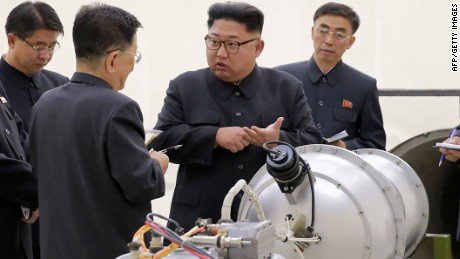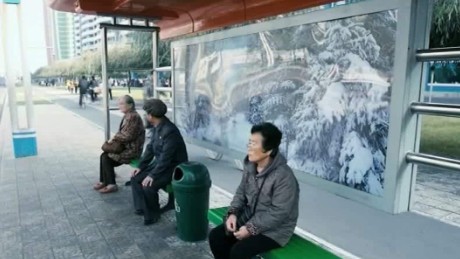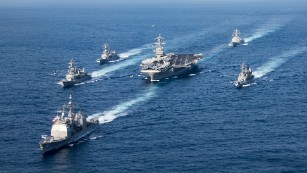Secretary of Defense James Mattis said Saturday that the increasing nuclear threat from North Korea has brought "a new urgency" to military and diplomatic collaboration with South Korea.
"The threat from North Korea has grown markedly even since my trip here earlier this year," Mattis said while appearing alongside his South Korean counterpart, Song Young-moo, at a press conference in Seoul.
"North Korea has accelerated the threat that it poses to its neighbors and the world through its illegal and unnecessary missile and nuclear weapons programs," he added, emphasizing that the US "does not accept a nuclear North Korea."
The Pentagon chief made his remarks one day after visiting the demilitarized zone that separates North and South Korea and meeting with South Korean President Moon Jae-in at the country's presidential palace.
Pyongyang has conducted several tests of its nuclear weapon and missile programs in recent months, including firing ballistic missiles over Japan and conducting a sixth nuclear test last month.
The actions have prompted the United States and United Nations to impose new sanctions on Pyongyang, but China's cooperation is considered critical to putting economic pressure on North Korea.
On Saturday, Song called North Korea's actions a "reckless provocation," while Mattis labeled them "outlaw behavior."
While diplomacy "remains our preferred course of action," Mattis said, President Donald Trump has made clear that the US commitment to defending US allies and upholding deterrence are "ironclad."
"Make no mistake. Any attack on the United States or our allies will be defeated," Mattis said. "Any use of nuclear weapons by the North will be met with a massive military response, effective and overwhelming."
The two defense chiefs said they had discussed a range of topics, including the pursuit of new military capabilities and the operational control of South Korean military forces in the event of a war on the peninsula.
"Given the national interest considerations at stake we believe that a tactical nuke is not worth deploying to the Korean Peninsula," Song said when asked about the issue by a reporter.
Mattis said "this subject has not been broached to me by the Republic of Korea government," and emphasized that the goal of the international community is to denuclearize the peninsula.
Mattis' trip comes as Trump prepares to travel to the region next week, where he will visit Seoul, a city of nearly 10 million people well within range of North Korean artillery. Trump's trip will also take him to Tokyo; Beijing; Hanoi and Da Nang, Vietnam; and Manila.



No comments:
Post a Comment